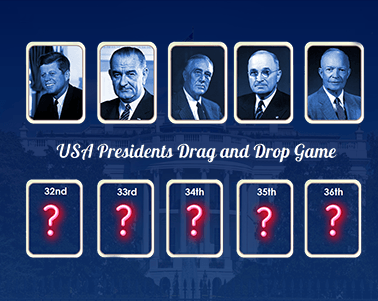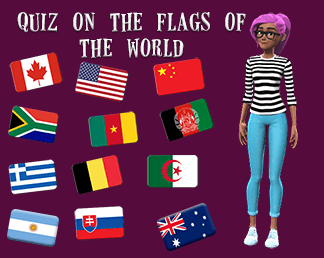African Leaders Who Shaped the Continent: Their Legacies and Impact
Africa, a vast and diverse continent, has seen a plethora of leaders who have left an indelible mark on its history. These leaders came from different regions and backgrounds, each facing unique challenges during their mandates. In this article, we will explore African leaders grouped by the regions they led and delve into what marked their mandates. From North Africa to Southern Africa, East to West, these leaders have played pivotal roles in shaping their respective nations and the continent as a whole.
North African Leaders
1. Gamal Abdel Nasser (1918-1970) – Egypt
Gamal Abdel Nasser, the charismatic leader of Egypt, is remembered for his efforts to modernize the country and his role in the Pan-Arab movement. Nasser’s nationalization of the Suez Canal and his vision of a united Arab world made him a symbol of anti-colonialism and nationalism.
2. Habib Bourguiba (1903-2000) – Tunisia
Habib Bourguiba was Tunisia’s first president after gaining independence from France. He implemented a series of reforms, including women’s rights, secularism, and modernization. His leadership laid the foundation for Tunisia’s progressive stance in the Arab world.
3. Muammar Gaddafi (1942-2011) – Libya
Muammar Gaddafi’s long rule in Libya was marked by his unique brand of governance, often described as a Jamahiriya, or state of the masses. His eccentric leadership style and resource management left a complex legacy, with both supporters and critics.
Related games
West African leaders
4. Kwame Nkrumah (1909-1972) – Ghana
Kwame Nkrumah was Ghana’s first Prime Minister and later its first President after gaining independence from British colonial rule. He was a staunch advocate for pan-Africanism and played a pivotal role in the decolonization of Africa. Nkrumah’s vision of a united Africa inspired leaders across the continent.
5. Leopold Sedar Senghor (1906-2001) – Senegal
Leopold Sedar Senghor was Senegal’s first President and a prominent poet and philosopher. He advocated for Negritude, a cultural and intellectual movement that celebrated African identity and heritage. Senghor’s leadership promoted cultural pride and unity.
6. Sékou Touré (1922-1984) – Guinea
Sékou Touré led Guinea to independence from French colonial rule. His presidency was marked by efforts to assert Guinea’s sovereignty and independence from France. He pursued a socialist agenda and was a prominent voice in the non-aligned movement.
East African leaders
7. Julius Nyerere (1922-1999) – Tanzania
Julius Nyerere, known as Mwalimu (teacher), was Tanzania’s first President. He was a champion of African socialism and self-reliance. Nyerere’s policies aimed at reducing poverty and promoting education had a lasting impact on Tanzania.
8. Jomo Kenyatta (1897-1978) – Kenya
Jomo Kenyatta was Kenya’s first President and a key figure in the country’s struggle for independence. He played a crucial role in nation-building and reconciliation after years of colonial rule.
9. Haile Selassie (1892-1975) – Ethiopia
Haile Selassie, the last Emperor of Ethiopia, was a symbol of Ethiopian unity and resistance against Italian colonization. His reign was marked by efforts to modernize Ethiopia and his role in the establishment of the Organization of African Unity (OAU).
Southern African leaders
10. Nelson Mandela (1918-2013) – South Africa
Nelson Mandela is perhaps one of the most iconic African leaders, known for his struggle against apartheid and his message of reconciliation. His presidency marked the end of apartheid and the beginning of a new, democratic South Africa.
11. Robert Mugabe (1924-2019) – Zimbabwe
Robert Mugabe, Zimbabwe’s first Prime Minister and later President, started as a hero of the independence struggle but his later years in power were marred by political turmoil and economic challenges. His presidency is a complex chapter in Zimbabwe’s history.
12. Samora Machel (1933-1986) – Mozambique
Samora Machel was Mozambique’s first President. He led the country to independence from Portuguese colonial rule and pursued socialist policies. His leadership left a significant impact on Mozambique’s identity and development.
Central African leaders
13. Mobutu Sese Seko (1930-1997) – Zaire (Now Democratic Republic of Congo)
Mobutu Sese Seko, born Joseph-Désiré Mobutu, was the President of Zaire (now the Democratic Republic of Congo) for over three decades. His leadership was characterized by authoritarian rule, political repression, and the promotion of African authenticity. Mobutu’s regime had a significant impact on the country, both politically and economically.
14. Laurent-Désiré Kabila (1939-2001) – Democratic Republic of Congo
Laurent-Désiré Kabila led the Democratic Republic of Congo during a turbulent period marked by the First Congo War and the ousting of Mobutu Sese Seko. His brief presidency was marked by efforts to stabilize the country, but it was cut short by his assassination in 2001.
15. Paul Biya (1933 – Present) – Cameroon
Paul Biya has been the President of Cameroon since 1982, making him one of Africa’s longest-serving leaders. His presidency has seen both stability and political challenges. Biya’s leadership style and management of Cameroon’s diverse population have been subjects of discussion and debate.
These Central African leaders have each left their own unique mark on the region, and their legacies continue to influence the political and social landscapes of Central Africa.
Conclusion on African Leaders
African leaders have come from diverse backgrounds and faced unique challenges during their mandates. They have left behind legacies that continue to shape the continent. From the anti-colonial struggles of Nkrumah and Kenyatta to the reconciliation efforts of Mandela and the revolutionary ideals of Sankara, these leaders have left an enduring mark on Africa’s history.
As Africa continues to evolve, it’s important to remember and learn from the leadership, both its successes and challenges, that has brought the continent to where it is today. These leaders are not just figures of the past but sources of inspiration for future generations.





















